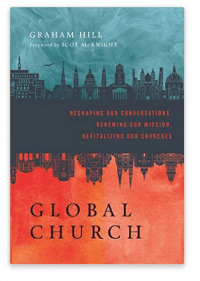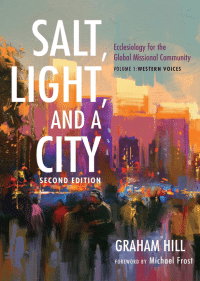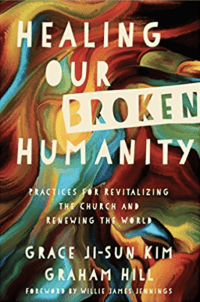7 Inspiring Women: Sarah Coakley
Instead of being constrained by churches, institutions, and cultures that ignore or inhibit the gifts of women, these women have expressed their gifts and passions fully, and, in doing so, have made a huge difference in people’s lives and in the world.
In this entry, we will look at Sarah Coakley. Sarah is a professor at the University of Cambridge, and an astonishingly gifted theologian and writer.
Sarah Coakley’s theology is interdisciplinary and broad. It is a théologie totale.[1] She engages trinitarian theology, contemplative thought, gender studies, and sexuality. She also examines personhood, culture, prayer, evolution, science, philosophy, history, and many theological traditions. She’s a formidable thinker and writer.
Sarah Coakley says the church is a vulnerable, desirous, contemplative, and trinitarian community. This is a prayer-filled vision. She reimagines the relationship between power and submission in church and society. Her theological vision is trinitarian and prophetic and practical. Sarah Coakley shows us that all sexual and other desires are a desire for God. And Coakley sees theology as an “ascetical exercise” demanding personal and social transformation.[2] Her vision for the church isn’t a cold, abstract theology. It’s “a recommendation for life.”[3]
Coakley offers a unique and striking theological vision. Coakley calls her theological method a théologie totale. Here I describe the key features of her théologie totale, and its implications for faith and the church.
But first, let me point out that systematic or other theologies must never be cold, abstract, and divorced from the cares and concerns of life. Such theologies are useless for faith and mission and the church. Coakley says that “the task of theology is always, if implicitly, a recommendation for life.”[4]
Because this is the case, we must embody our theology, and allow it to transform us personally and socially. Such theology is always in via (in motion, en route, and being made and remade). Such theology is necessarily contemplative, practiced, and embodied. It requires “the willingness to surrender control (not to any human power, but solely to God’s power; the willingness to accept the arid vacancy of a simple waiting on God in prayer.”[5]
Here are nine features of Sarah Coakley’s theology:
1. Faith and theology must privilege prayer. Prayer is crucial to theology. Only by submission to God, and joining with his creative Spirit, can we do theology properly. Contemplation acknowledges “the ‘messy entanglement’ of sexual desire and the desire for God.”[6] It “reorders the passions” and “presents us with a trinitarian model of power-in-vulnerability.”[7] The church must rediscover the integrative nature of theology, prayer, desire, asceticism, the body, sexuality, and witness.
What I have elsewhere called the ‘paradox of power and vulnerability’ is I believe uniquely focused in this act of silent waiting on the divine in prayer. This is because we can only be properly ‘empowered’ here if we cease to set the agenda, if we ‘make space’ for God to be God…
Engaging in any such regular and repeated ‘waiting on the divine’ will involve great personal commitment and (apparently) great personal risk; to put it in psychological terms, the dangers of a too-sudden uprush of material from the unconscious, too immediate a contact of the thus disarmed self with God, are not inconsiderable… But whilst risky, this practice is profoundly transformative, ‘empowering’ in a mysterious ‘Christic’ sense.
2. Theology is best done “in via.” Theology is always “in motion” and “en route” and “being made and remade.” It involves opening the whole self to God, the Spirit, the Word, the community, and Christ’s presence in the world. This is “an ongoing journey of purgative transformation and change.”[8]
3. Faith needs philosophy and science. Theology, philosophy, and science will never be identical. Grace and nature are demarcated.[9] Theology is something different from the others, being illuminated by prayer, Word, and Spirit. But theology is enriched in discussion with philosophy and the sciences.
4. Orthodox faith is about personal and social transformation. Orthodoxy isn’t about “creedal correctness” or “imposed ecclesiastical regulation.” Orthodoxy is “a project, the longed-for horizon of personal transformation in response to divine truth.”[10]
5. Our faith is always socially located, but it need not be socially reduced. We must draw on the social sciences. We recognize that we do theology and mission in social settings. Here we must discern the communal and social aspects of our theology and witness. We acknowledge where this sociality is both enriching and confining.
6. Theology must expand its horizons. Christian theology has classical “loci.” This includes Trinity, church, mission, Christ, soteriology, and so on. But we must explore these in fresh ways. We must make new theological connections and add innovative themes.[11] And we need to expand our horizons to include a theology of sexuality, gender, race, class, beauty, desire, art, ecology, and more.
7. Theology needs to embrace art, beauty, music and aesthetic expression. Theology depends too much on words, propositions, preaching, teaching, and writing. But we must rediscover the power of aesthetics. The church enriches its community and witness through music, poetry, beauty, dance, art, prayer, and liturgy.[12]
8. We must seek to overcome false dichotomies. It’s time to reject oppositional binaries. Belief-practice, scholar-practitioner, prayer-theology, thought-affect, science-religion, and so on, are all false dichotomies. The church’s theology, community, and witness are all enriched through more holistic and integrative approaches to faith and life.
9. For Sarah Coakley, desire is the central theological theme. All human desire finds its source and goal in divine desire—the ontological desire within the Trinity, and the ultimate desire for union with God. Sometimes in our focus on “joining with God in his mission” we forget that God desires us. The God of desire creates human desire. God inspires us to desire others and to yearn for union with him.[13]
Sarah Coakley encapsulates the spirit of her théologie totale in these words: “All in all, théologie totale is hard work. But it is not the hard work of a Pelagian ‘works righteousness.’ It is the graced work of contemplation and theology and ethnics and politics—without division, without confusion. The greatest of these, the essential work of love, is fostered in contemplation.”[14]
If the church is to be a place that enables human flourishing, then it must embrace a similarly passionate, desirous, integrative, prayer-filled, and theologically courageous vision.[15]
Want more on Sarah Coakley? This blog post is an excerpt from Chapter 10 of my book “Salt, Light, and a City, Second Edition: Ecclesiology for the Global Missional Community: Volume 1, Western Voices.” You can get the book here.
Have you read Sarah Coakley’s work? What themes and ideas stood out to you? I’d love to hear your thoughts in the comments section below.
Other posts in this series
[2] Ibid., 19.
[3] Ibid.
[4] Ibid., 18.
[5] Ibid., 19.
[6] Ibid., 341.
[7] Ibid., 342–43.
[8] Ibid., 88.
[9] Ibid.
[10] Ibid., 89.
[11] Ibid., 90.
[12] Ibid., 91.
[13] Ibid., 92.
[14] Ibid.
[15] The main quote in this blog is from: Coakley, Powers and Submissions, 34, 35.
Graham Hill
Graham Hill (PhD) teaches at Morling College in Sydney, Australia, and is the Founding Director of The GlobalChurch Project – www.theglobalchurchproject.com. He’s the author of “GlobalChurch: Reshaping Our Conversations, Renewing Our Mission, Revitalizing Our Churches” (IVP, 2016), and “Salt, Light, and a City, Second Edition: Ecclesiology for the Global Missional Community: Volume 1, Western Voices (Cascade, 2017).”
© 2017 All rights reserved.
Copying and republishing this article on other Web sites, or in any other place, without written permission is prohibited.
Want to get your hands on more, see our subscriptions
Books
Don’t forget to buy Graham Hill’s books:
- Global Church
- Salt, Light, and a City (second edition)
- Healing Our Broken Humanity



Comments: We’d love to hear your comments and reflections on this blog post!





